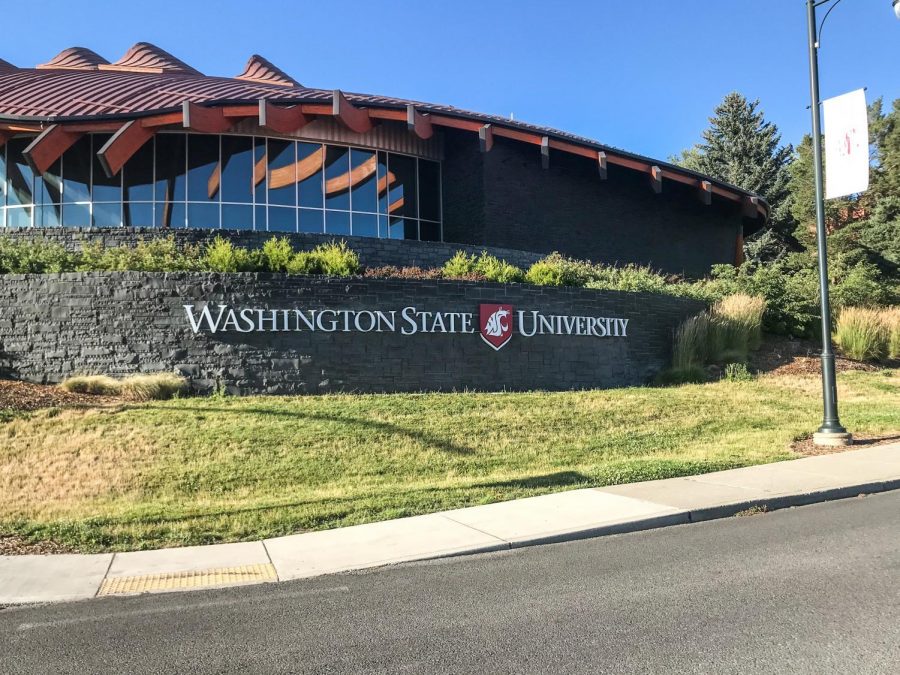WSU’s Enrollment Crisis
Southside Café renovation, hopes to curb enrollment issues
November 28, 2022
On Nov. 17 and 18, WSU’s Board of Regents met to decide on new plans for the university such as renovating campus, planning on sizing for staff and renaming locations on campus.
Looking back at the budgetary impacts the pandemic has heavily affected enrollment as it declined in 2022 and revenue losses continued for the university. In the future looking at 2023, the board sees continued enrollment declines and revenue declines that are managed through budget reductions and use of dome reserves, Stacy Pearson, vice president and chief financial Officer of Finance and Administration said.
The 2023 budget was reduced by 5% in response to enrollment declines and the unfunded portion of the salary increases.
“We projected net tuition costs at $15 million for the year due to the decline, so it is something we have to take very seriously and manage,” Pearson said.
The future plan to deal with the “enrollment cliff” includes the chancellors and VPs being responsible for ensuring that spending is managed within the budget. Begin to plan early for additional reductions in 2024. Then to also consider future enrollment declines and how to utilize reserves, Pearson said.
“The competition factor is that a lot of other institutions are competing with us for students,” Pearson said.
A graph detailed that student enrollment in 2019 was around 31,000 students whereas next year it is projected to only be 26,500 students.
Ellen Taylor, vice chancellor of Students Affairs, discussed the renovation project called Southside Neighborhood Revitalization, a vision of different efforts to refresh the look of Southside and additionally plans to help combat enrollment.
Phase one of this renovation project would be to renovate the Southside Café.
“The halls and dining facilities on the Southside of campus are very large and very old,” Taylor said. “Southside is remote, it feels deprioritized, and it feels like we have de-invested that is what we hear from our students.”
The new dining hall would be a 50,000-square-foot facility to serve 2,500 plus students per day
To fund the project they plan to use auxiliary operating reserves and structured new debt. However, they are attempting to get philanthropic support and will be part of the fundraising priorities for Student Affairs, Taylor said. The estimated cost of the renovation would be $60 million.
Additionally, The Board of Regents Administrative Professional Comprehension Enhancement discussed project goals which include comparing university roles based on skill, responsibility and impact on the university. They want to consider geographic differences when it comes to employer compensation. They want to create equity and consistency across the university system. Finally, they want to design tools, guides and policies to make data-informed decisions, Compensation Manager Melissa DiNoto said.
When considering the aspects of what employment entails at WSU does not consider the person in the role, their time in that role, their future status and current compensation, DiNoto
“It is super important to understand roles and responsibilities, what pay ranges should be to ensure that we are compensating employees properly,” John Schoettler, a member of the Board of Regents and vice president of Amazon’s Global Real Estate and Facilities team said.
Currently, the minimum amount an employee can be paid is $3,000 a month and the maximum is $10,000 a month. There are employees above and below this standard, DiNoto said.
The mistake made throughout the process was that the plan was developed but the board knew they did not have the funds to be able to move employees up to the minimum payment WSU President Kirk Schulz said.
“Regardless of our need to bring students in, we have to have faculty and staff and professionals that are at the level that students want to come and be a part of this environment,” Lisa K. Schauer, vice chair of the Board of Regents and president of PointNorth Consulting said.










